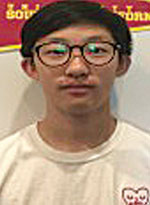
Richard Yea Portola HS 10th Grade
As the winter season is coming to an end, the 2018 Winter Olympics held in Pyeongchang, South Korea is having a shaky start off.
On 5 December 2017, the International Olympics Committee(IOC) announced that the Russian Olympic Committee had been suspended from the 2018 Winter Olympics. The IOC announced that it was banning Russia from competing in the Winter Olympics as punishment for a vast, government-run doping scheme.
However, this wasn’t the first time that Russia had been accused for the use of drugs before the Olympics. In fact, Russia shares quite a dark history with drugs. On 18 July 2016, an independent investigation commissioned by World Anti-Doping Agency concluded that it was shown “beyond a reasonable doubt” that the RUSADA, the Ministry of Sport, the Federal Security Service (FSB) and the Centre of Sports Preparation of the National Teams of Russia had “operated for the protection of doped Russian athletes” within a “state-directed failsafe system” using “the disappearing positive [test] methodology.”
Furthermore, according to the McLaren Report, the Disappearing Positive Methodology operated from “at least late 2011 to August 2015.” It was used on 643 positive samples, a number that the authors consider “only a minimum” due to limited access to Russian records. In a later follow up investigation, it was confirmed that from 2011 to 2015, more than 1,000 Russian athletes in various sports benefited from the cover up. As a result, over a dozen of Russia’s medals from the Olympics had been taken away by the International Olympic Committee.
In prior to the 2018 Pyeongchang Winter Olympics, 43 Russian Athletes had been disqualified for the competition, and many more have been under investigation since then. Russia continues to deny the existence of a doping program, but statistics and investigations tell us otherwise that the existence of a doping program in Russia is undeniable.
However, the ban by the IOC was not a complete ban, as athletes who had no previous drug violations and a consistent history of drug testing were granted the right to compete under the Olympic Flag as neutral “Olympic Athletes from Russia.” Because neither the Russian anthem nor the flag will be present, the Olympic Flag and the Olympic Anthem will be used instead.
Questions over the controversy remain to this day: Will the IOC continue to allow countries the use of drugs to enhance their performance in the Olympics in face of technology? Or will the IOC take initiative and strengthen the security of drug testing?
The IOC still has a long way to go before this question is fully answered.
<
Richard Yea Portola HS 10th Grade>

